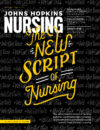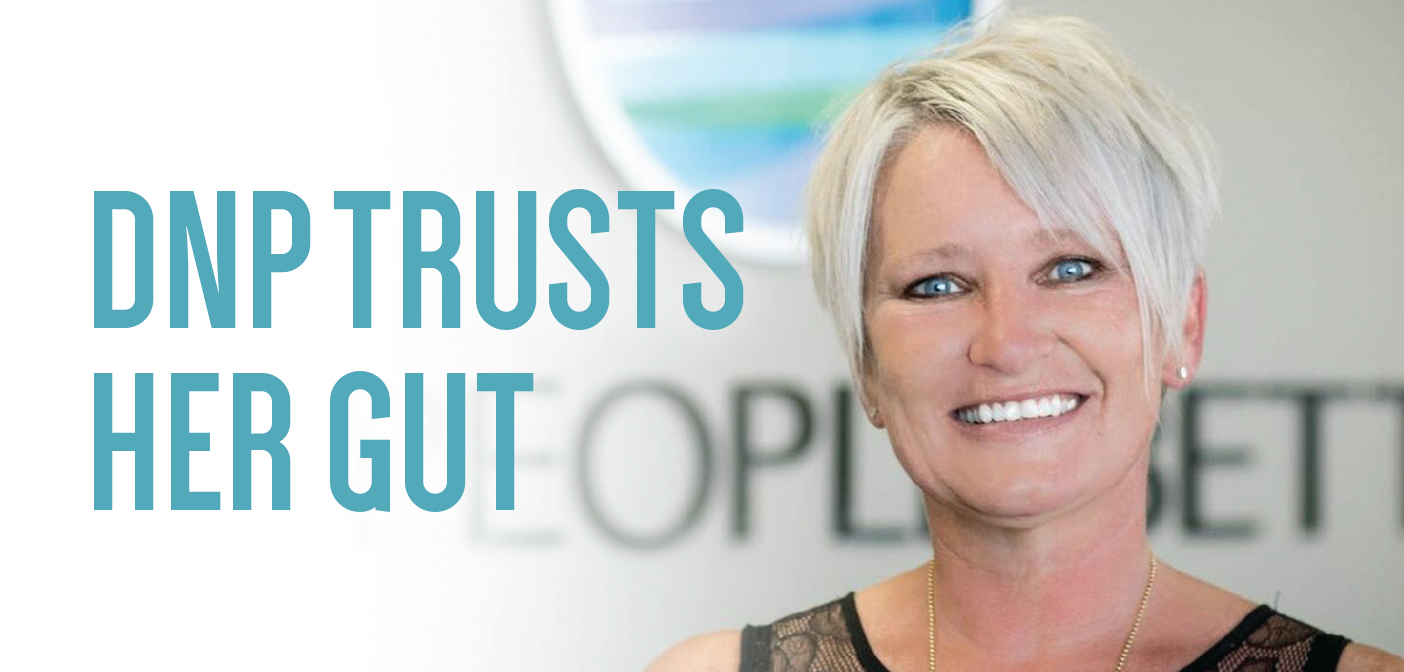Kerri Miller, DNP ’11, ANP, was—for the moment—headed off to crunch agave instead of data.
She was on one of her “every five months or so” trips to Guadalajara, Mexico, to visit the farms that provide agave plants that in turn provide a prebiotic fiber for re:iimmune, a product she developed to not only rehydrate sick patients but heal their intestines enough to absorb nutrition and restorative probiotics. Her Missouri-based company, Make People Better, currently has its product in Walmart stores, Target, and “a ton of independent pharmacies.” And Miller isn’t only doing well, she says, but gladly doing good: For every box of re:iimmune sold, she donates a dose through the company’s GetWell MakeWell program.
Over 15 years, Miller had taken many trips to Nicaragua to train local women to be community health workers, sharing information on care of children previously unavailable to impoverished residents or even frowned upon by their government. There she witnessed the ravages of diarrhoeal diseases that drain the body of water and nutrients and injure the intestines, leaving the body unable to absorb properties that could promote healing and prevent further infection.
“A million people die of dehydration every year,” Miller says. And the problem isn’t confined to impoverished countries. The inspiration for re:immune also can be traced to diabetic and pre-diabetic patients Miller treated in at a Missouri hospital.
“Every cell in the human body requires water. They weren’t getting enough liquids to get better and stay better.”
“They should have been getting better more quickly. Or if they were sent home, they would end up being readmitted. It didn’t make sense,” explains Miller, who eventually pinpointed dehydration as the likely culprit. “Every cell in the human body requires water. They weren’t getting enough liquids to get better and stay better.”
She needed a super-hydrator that patients could take orally. “We can’t be giving IVs to all these people.” Anything sugar-based was out. And, since the original idea was to help save the world, Miller had to make it easily accessible so it could work for low-income countries. “I went, ‘OK, what are my options?’ ”
Step 1, rely on her DNP education. It was why she had come to the Johns Hopkins School of Nursing in the first place—“I didn’t apply anywhere else”—specifically looking for the opportunity to make a difference globally. “The level expected at Johns Hopkins is so awesome,” Miller raves. “They forced me to become an expert at global health.”
Next, gather the knowledge that was already out there. “There was so much information on probiotics that had clinical validity.”
By 2013, Miller had her formula, a powder that mixes with water and delivers the amino acid L-glutamine to help repair tissue, a prebiotic to feed the body’s “good” bacteria, zinc and a blend of 14 probiotics to help boost immunity, plus ginger root to ease nausea. In March 2013, she gave up her nursing job. By 2014, the blend was ready for international testing in a “human gut simulator,” a machine that replicates the digestive process. “I wanted to solidify the product met my goals with scientific studies.” The product is not FDA approved, though each of its ingredients is generally recognized as safe [GRAS] for human consumption. “I didn’t want to do [FDA approval],” Miller says. “It’s too limiting, really. It’s a dietary supplement.”
Finally, don’t look back. “It works,” Miller says. “I didn’t really doubt that. We’ve proven it in the market, scientifically, and clinically—that people will get better. But I left a really good job, a job that I loved.” She figures she can always go back, but for now, she’ll ride the good fortune born of great education, good DNP work, and plenty of help. “The right people have shown up at the right time, every time.”
SWEET SCIENCE
“Even the sodium is balanced. It was important to be an isotonic hydration formula,” Kerri Miller says of re:iimune, offering candidly that those who’ve used the rehydration product might wonder about that. The taste has been described as “raspberry lemonade saltwater,” not a popular flavor profile.
“We’ve had to work really hard on the flavor, making it palatable for all,” Miller says of an all-natural “citrus punch” version that should be available in a few months. “But no one is going to complain.”
For now, Miller says, even those who do not care for the original flavor tell her, “I’ll drink it because the benefits far outweigh the taste.”

